Homelessness: Community vs Housing
< Back to Insights“Housing will never solve the problem of homelessness,” says Matt Freeman. “Community will.”
A blog post written by Collective Works co-worker, Lee Henry.
It’s a sunny Saturday in Austin, Texas, and Freeman is leading our small group on a tour around Community First! Village, an ambitious “tiny home” project which has become a support network for hundreds of struggling people.
The 27-acre site, dubbed “an RV park on steroids”, provides 230 homes for residents that are identified as disabled and chronically homeless.
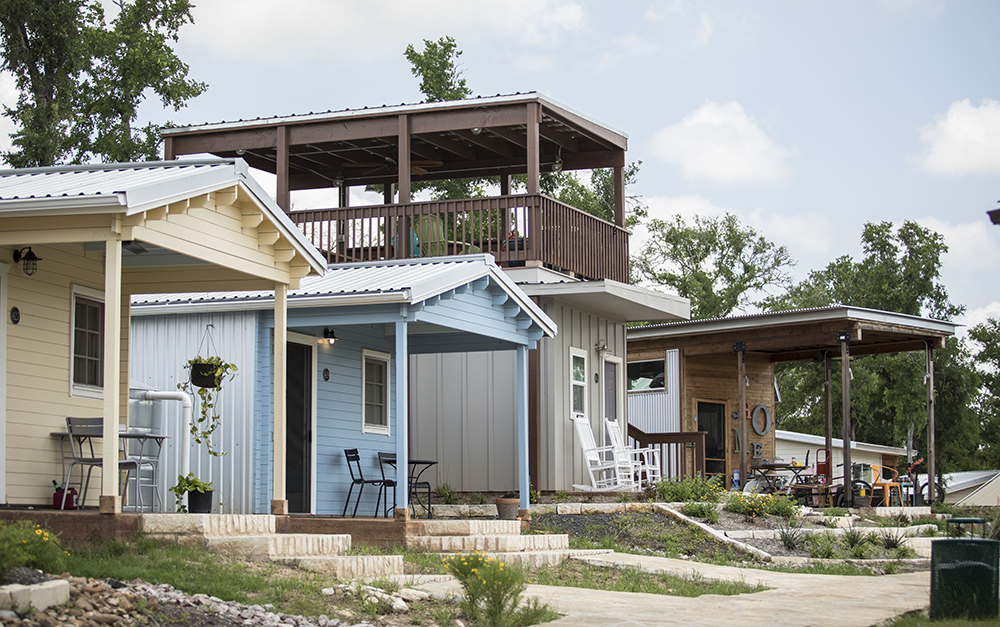
Freeman runs a Christian mission based in the village. The biggest cause of homelessness is, he believes, “the profound catastrophic loss of family”. Losing this valuable support network can cause people to quickly become isolated and vulnerable. “They end up somewhere they didn’t ever believe they could.”
Community First! is part of an ongoing project by charity group Mobile Loaves and Fishes. Founded in 1998, they started by giving out meals to the homeless from an old minivan. In 2004 the group began purchasing used RVs and housed more than 100 people around Austin. The idea to build a permanent park was driven by a desire to do more than just give handouts.
“Most of what we do is about empowering communities into a lifestyle of service,” explains Freeman. Volunteers from the local community are regularly onsite lending a hand. Residents can also earn money by working in various roles. This helps to keep the village sustainable but also gives a renewed sense of pride and purpose to people who may have been out of work for some time.
The micro houses feature some innovative designs that have gained attention in Austin and beyond. However, Freeman is keen to point out that community and a sense of belonging is at the forefront of their project. “A home is more than just bricks and mortar. It’s where you live, it’s affirmation, it’s a place of hospitality and tradition. More than a physical structure.”
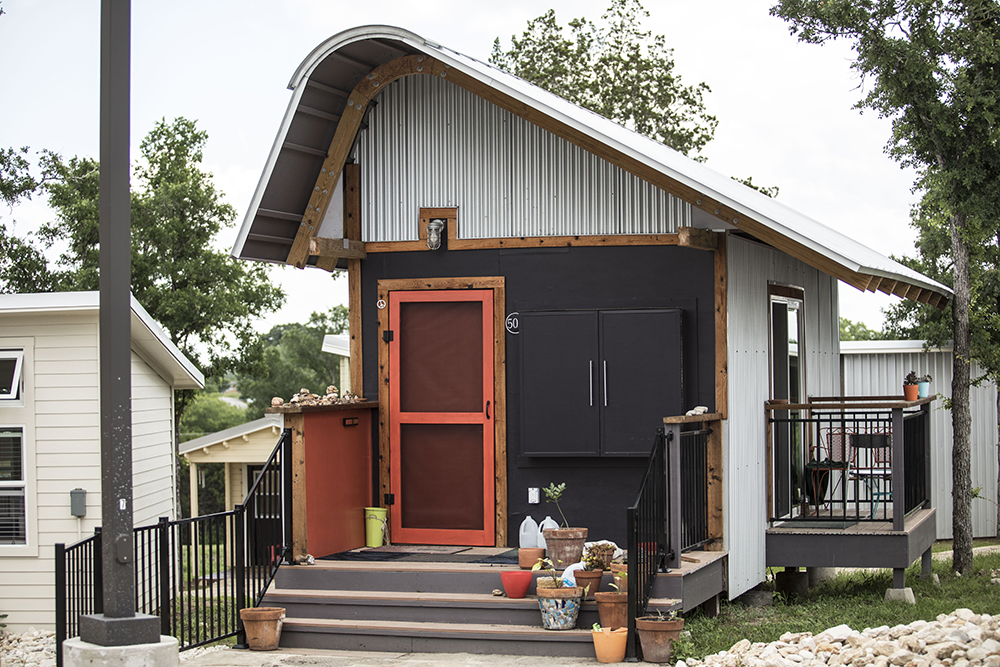
Designs were chosen via an anonymous contest named Tiny Victories, organised by the Austin chapter of the American Institute of Architects. The brief was to create a single-person dwelling of no more than 200 square feet. The brief also stressed that the home should provide the basic needs of shelter and comfort while, to the greatest extent possible, promoting a sense of place in the community. Ten winning designs were eventually chosen and construction began in 2014.
The $17million project was funded almost entirely with private donations and through partnerships with local companies. Each resident has their own private sleeping space. Kitchen, dining and bathroom facilities are shared in communal areas. There is also an outdoor cinema, kitchen garden, library, art studio and hair salon on site.
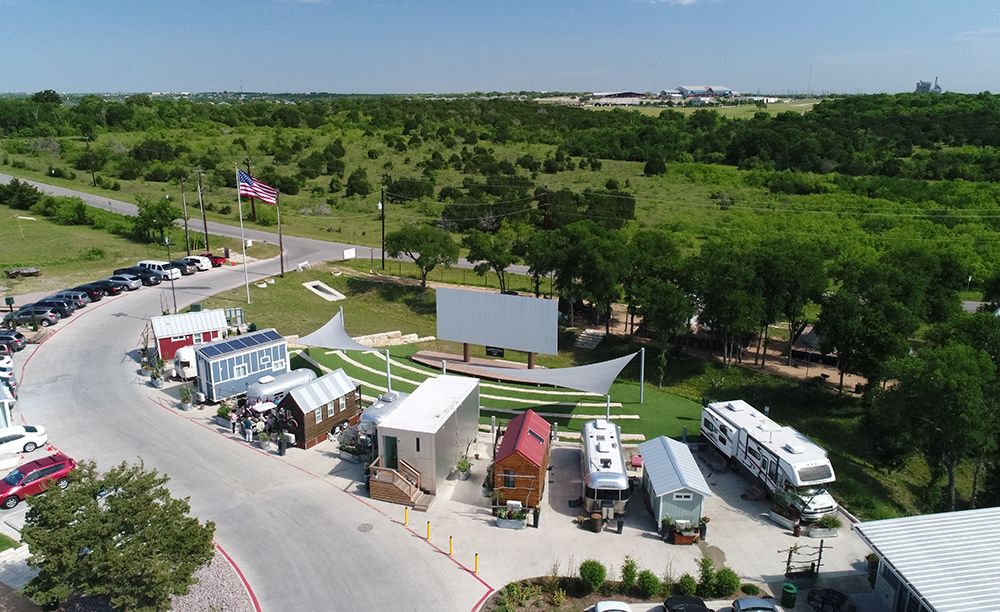
A selection of homes is also available to rent per night via Airbnb. I’m spending the weekend in a beach-hut style home named “Breezy”. It’s bright and cosy, with an outdoor seating area overlooking the cinema. The money raised from these rentals goes directly back into funding the village.
My tour concludes with a welcoming ceremony or “blessing” for two new arrivals, Betsy and Terry. They are each given a handmade quilt to keep them warm and bread to keep them nourished. Betsy remarks that she is looking forward to feeling full. “I haven’t been full for a while.” She was previously living on the streets for five years but now has a place to call home.
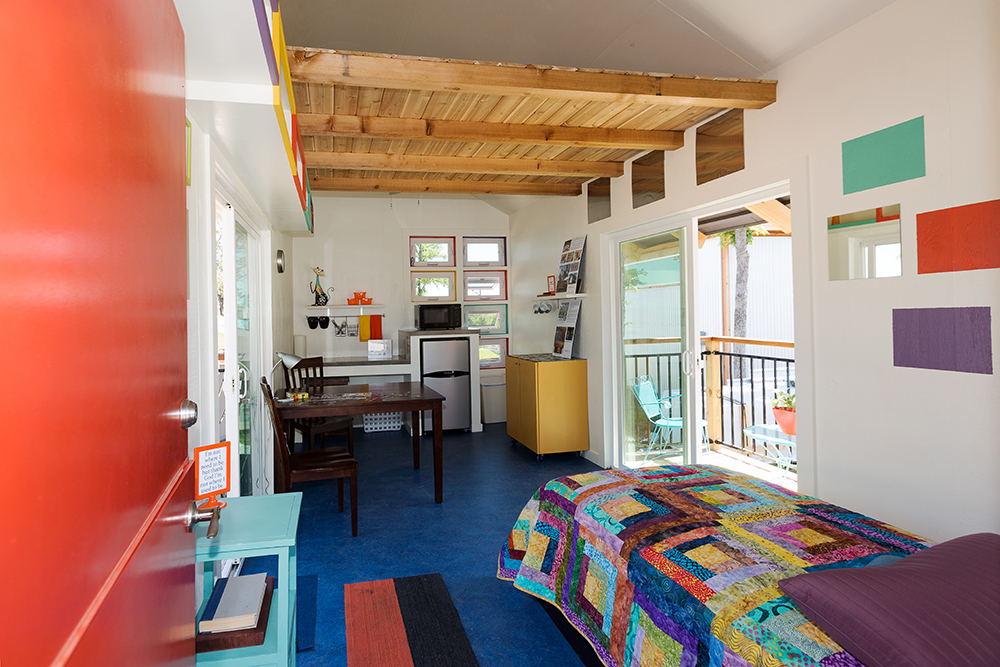
While primarily a Christian organisation, applications are open to all, regardless of beliefs. All they ask is that applicants have lived in Austin for at least one year and are suffering with a disabling condition, that they pay rent and that they abide by a code of conduct.
Freeman says that the majority of people who arrive grasp the opportunity and embrace their new lifestyle. “Eighty-six per cent of people are still here. Some left because they couldn’t keep to the rules, or couldn’t afford the rent. Others left because they had a vision beyond this place.”
Community First! also has a vision for the future, recently breaking ground on a site extension that will create a further 300 homes at a cost of $20million. Applications are now open to local architects and winning designs will be selected in Summer 2019.
Perri Verdino-Gates, communications manager for the village, sums up the spirit of the project. “We don’t ask, ‘What’s the bare minimum?’ That won’t promote long-term restoration and healing. The bare minimum is what they had on the streets. We try to create a place that’s nice. It’s a privately funded, 230-bedroom mansion that cost $17m. People come and say, I should live here.”
Read more about Community First! Village here.
Lee Henry is a Co Worker with Collective Works. He also runs his own creative agency Ounce Of Style.
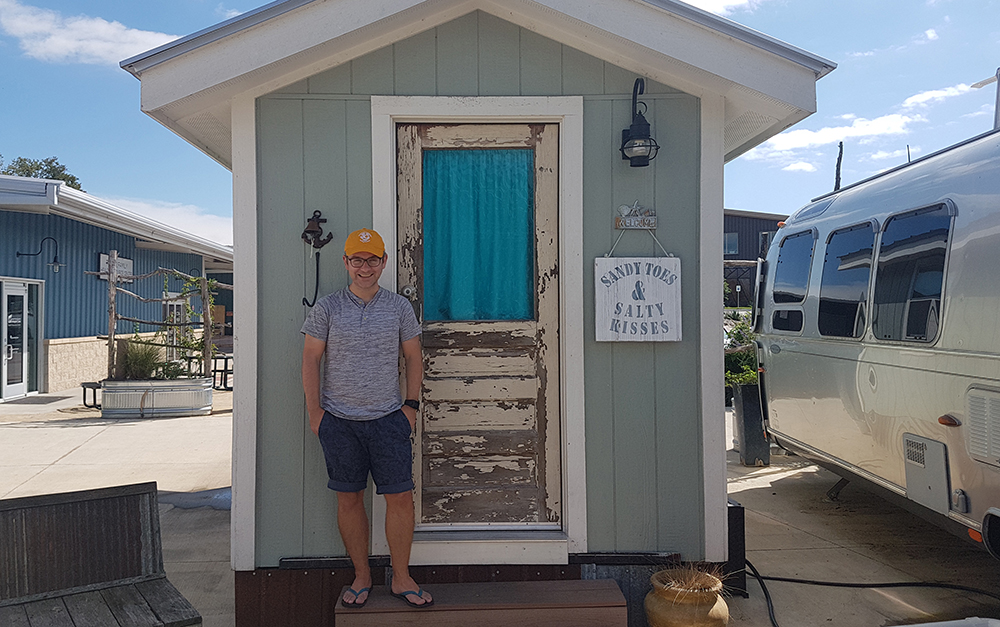
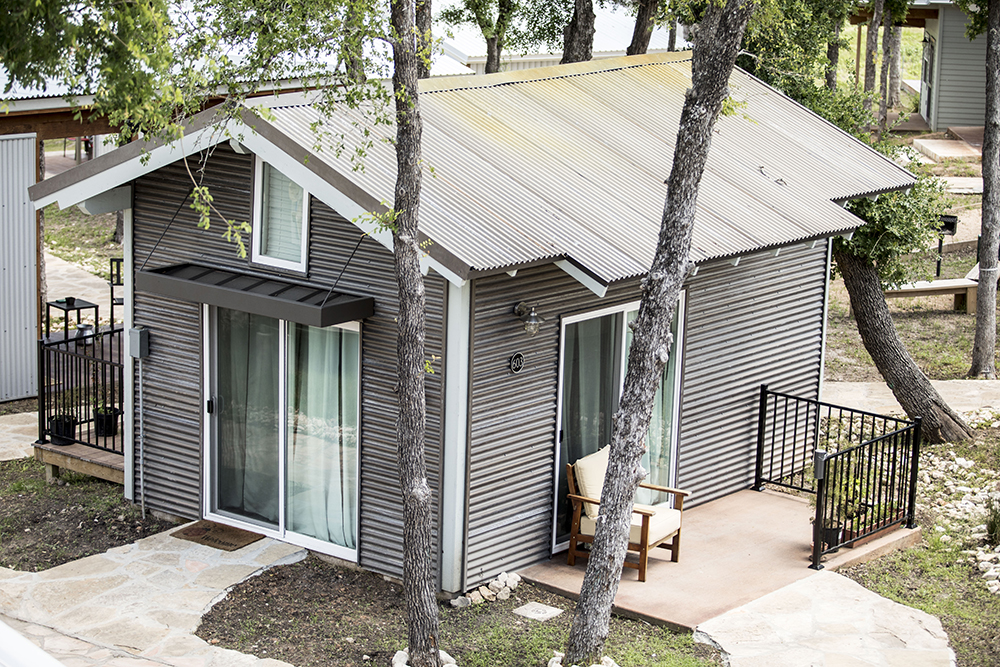
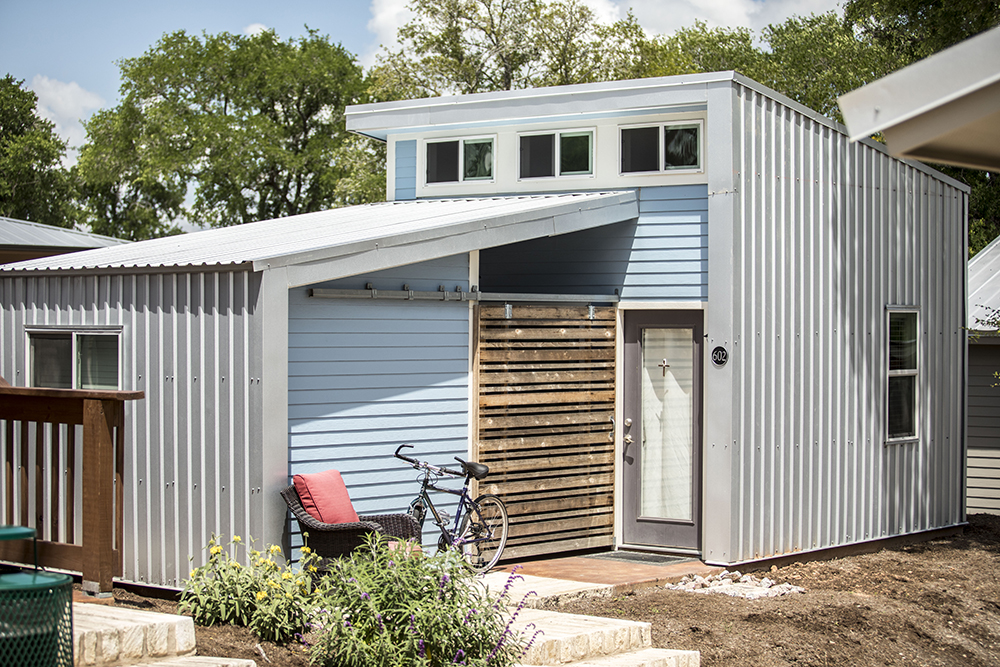
Let’s have a chat about your vision and
how we can help you realise it.
Collective Works are an architecture & design studio. Our network of professionals will create your perfect solution.